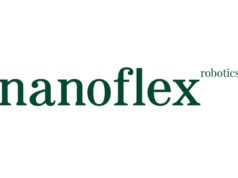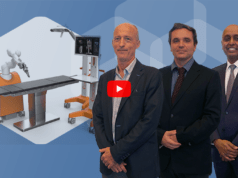
XACT Robotics has just received clearance from the US Food and Drug Administration (FDA) to sell its first robotic system in the USA for use during computed tomography (CT)-guided percutaneous interventional procedures. XACT’s technology is the first hands-free robotic system combining image-based planning and navigation with insertion and steering of various instruments to a desired target across an array of clinical applications and indications.
“We are committed to redefining the way the entire medical community utilises robotics, beginning with interventional radiologists,” says Harel Gadot, founder, executive chair, and president of XACT Robotics. “Being the first to introduce a hands-free robotic system, we have the potential to provide significant clinical, technical and economic value while democratising interventional procedures. Our system’s small footprint and high mobility design will enable care providers to treat a broad range of patient care needs in various clinical sites of service.”
“The XACT Robotic system provides a unique platform to the interventional radiology community which can help improve the delivery and quality of care for the patients we serve,” comments Nahum S Goldberg, the principal investigator in a multi-site study using the system, which is still an investigational device in Israel, where XACT Robotics is based. Goldberg is the head of the Interventional Oncology Unit and director of the Applied Radiology Research Lab at Hadassah Hebrew University Medical Center, Jerusalem, Israel. “Based on our experience with this unique robotic technology, we can reach very small targets with unprecedented accuracy. Furthermore, this system holds much promise for enabling more efficient use of time and hospital resources.”
The XACT Robotic system is based on research originally conducted at the Technion—Israel Institute of Technology, by Moshe Shoham, founder of Mazor Robotics (acquired by Medtronic in 2018). The company plans to launch the system to select US radiology centres of excellence partners, and will debut its technology at the 2019 Radiological Society of North America conference (RSNA; 1–6 December, Chicago, USA).













